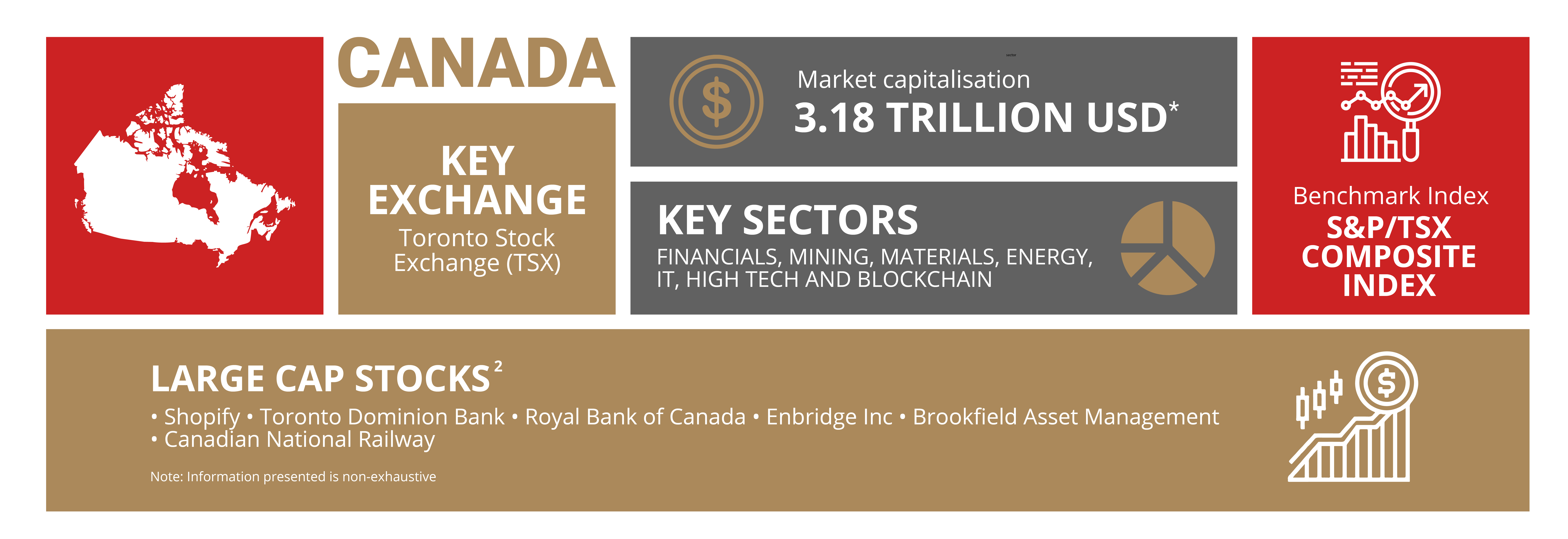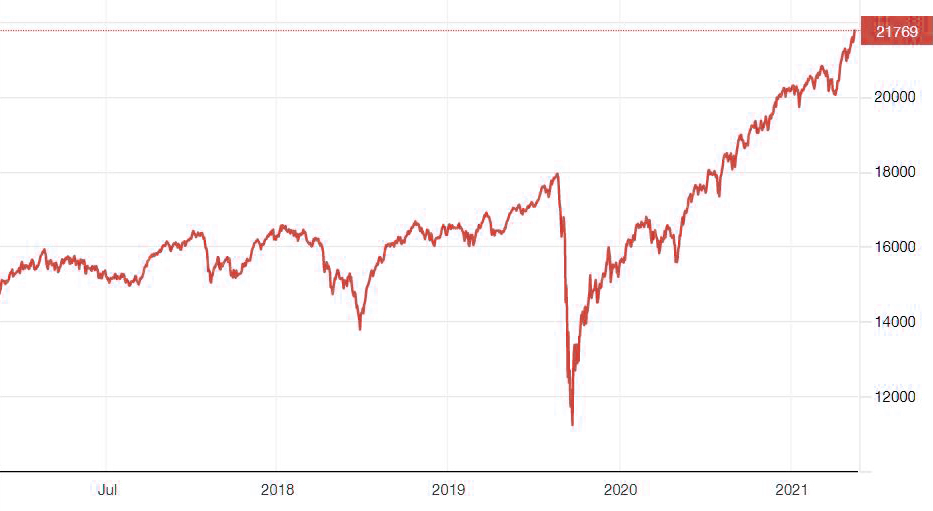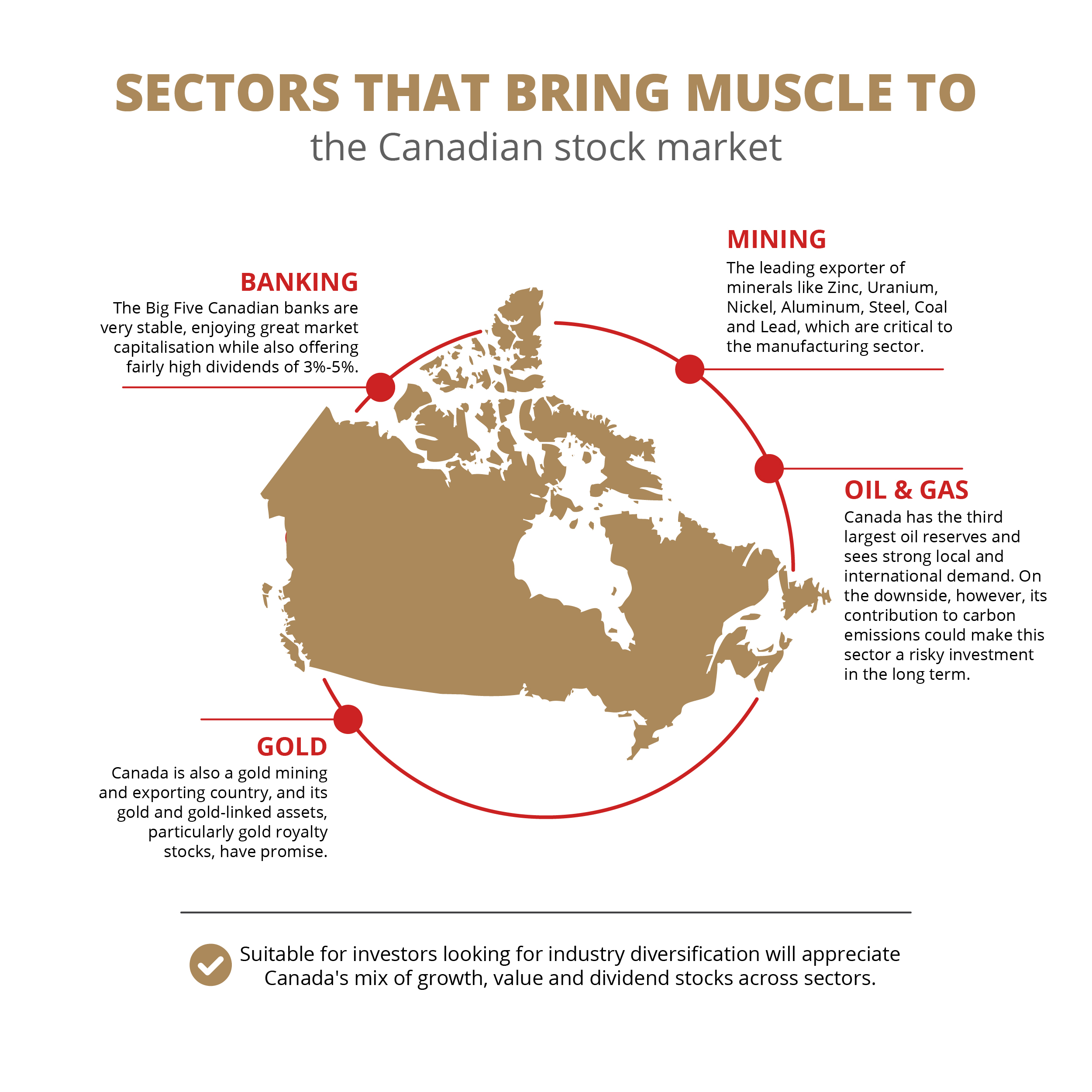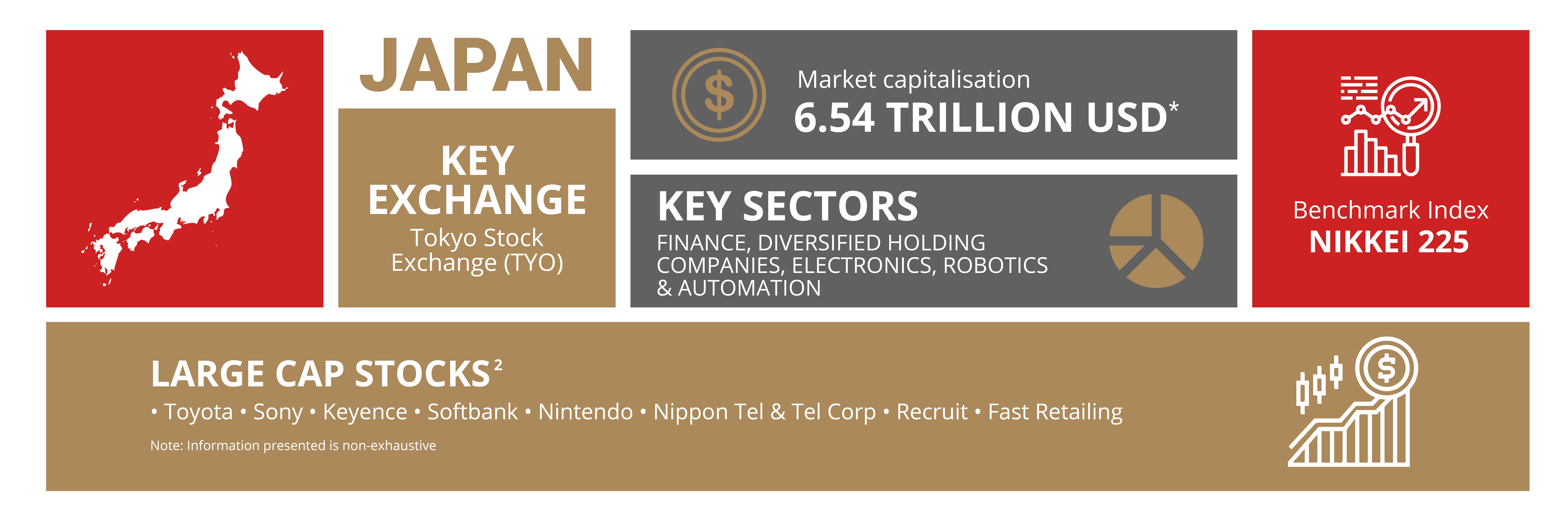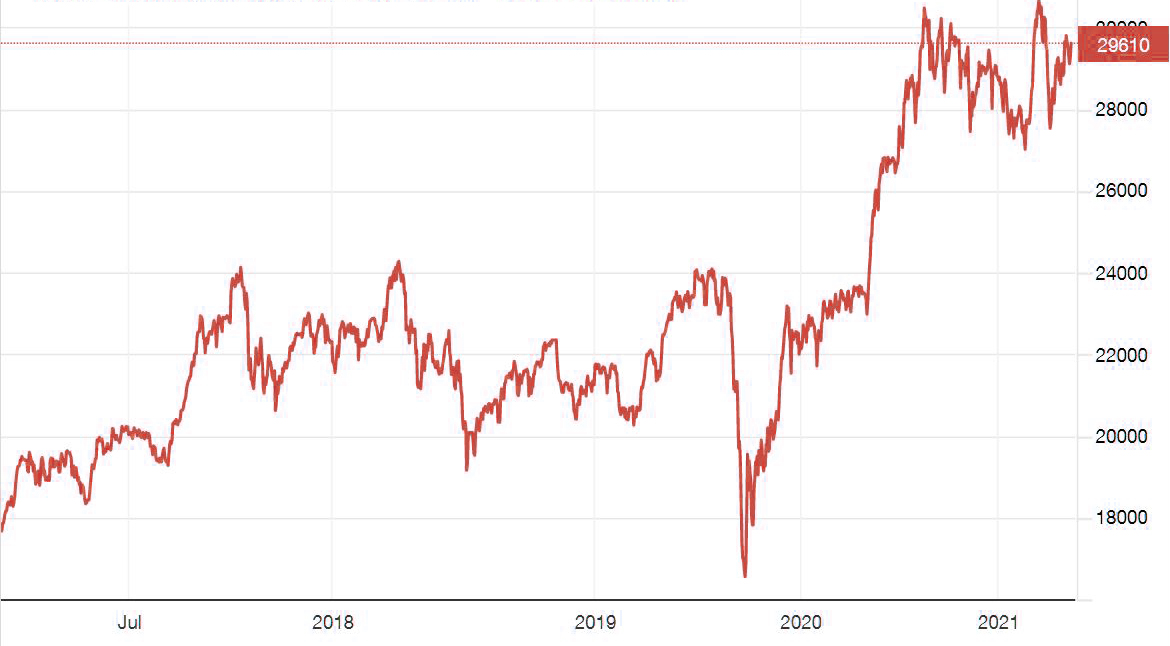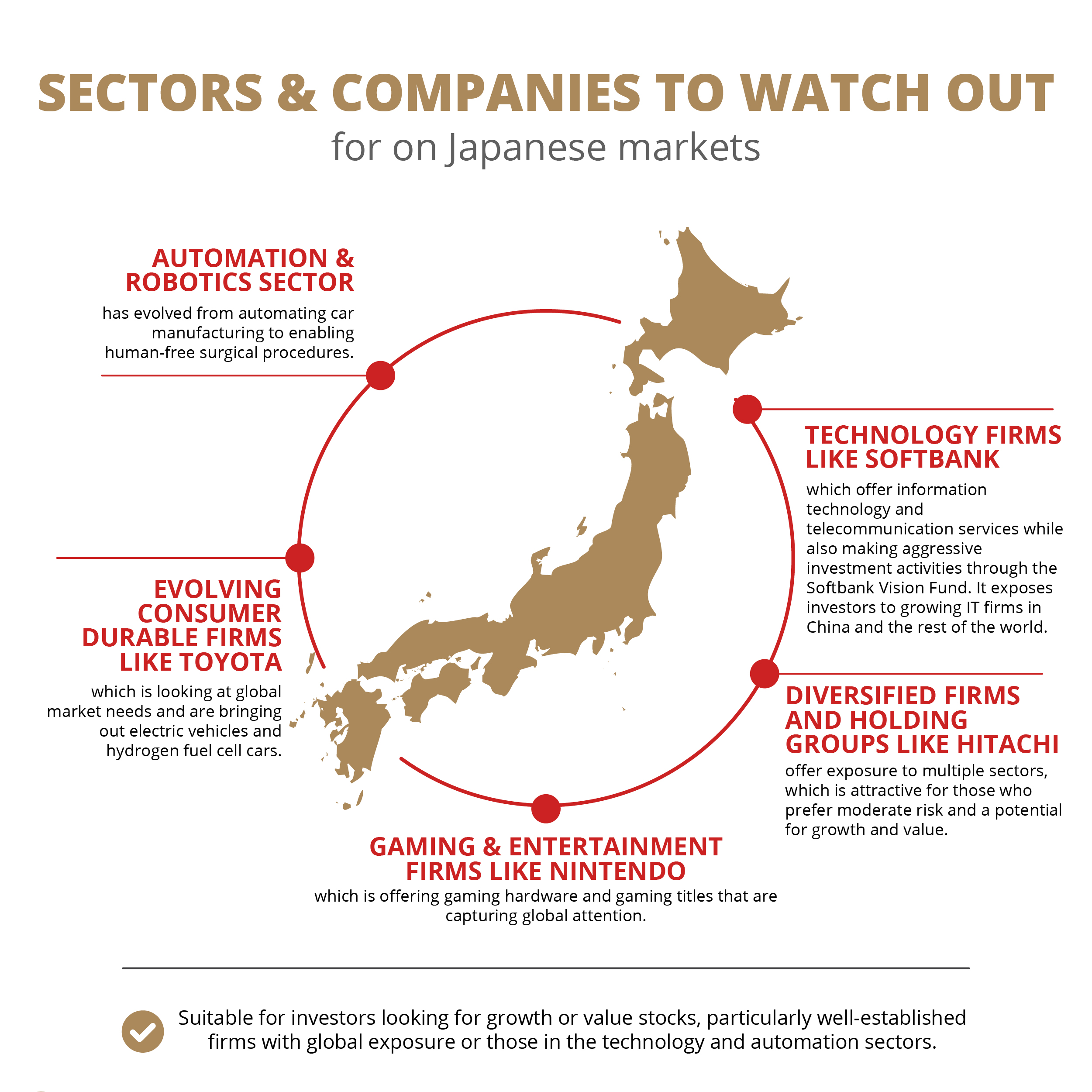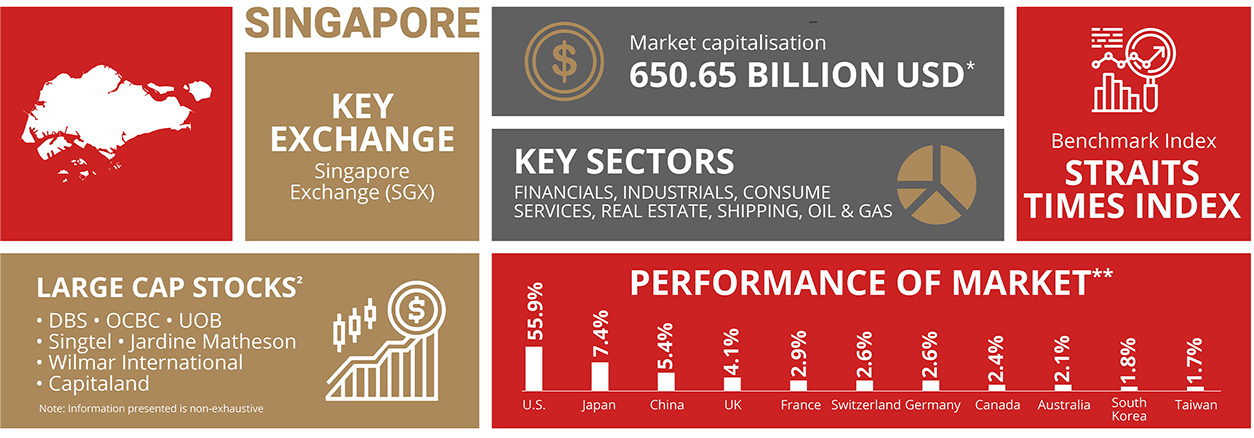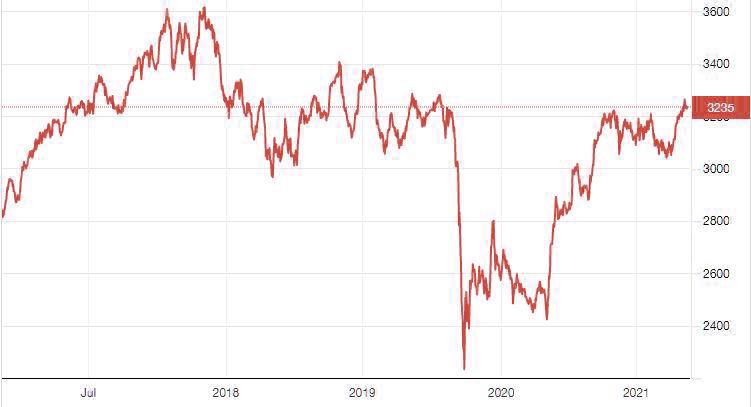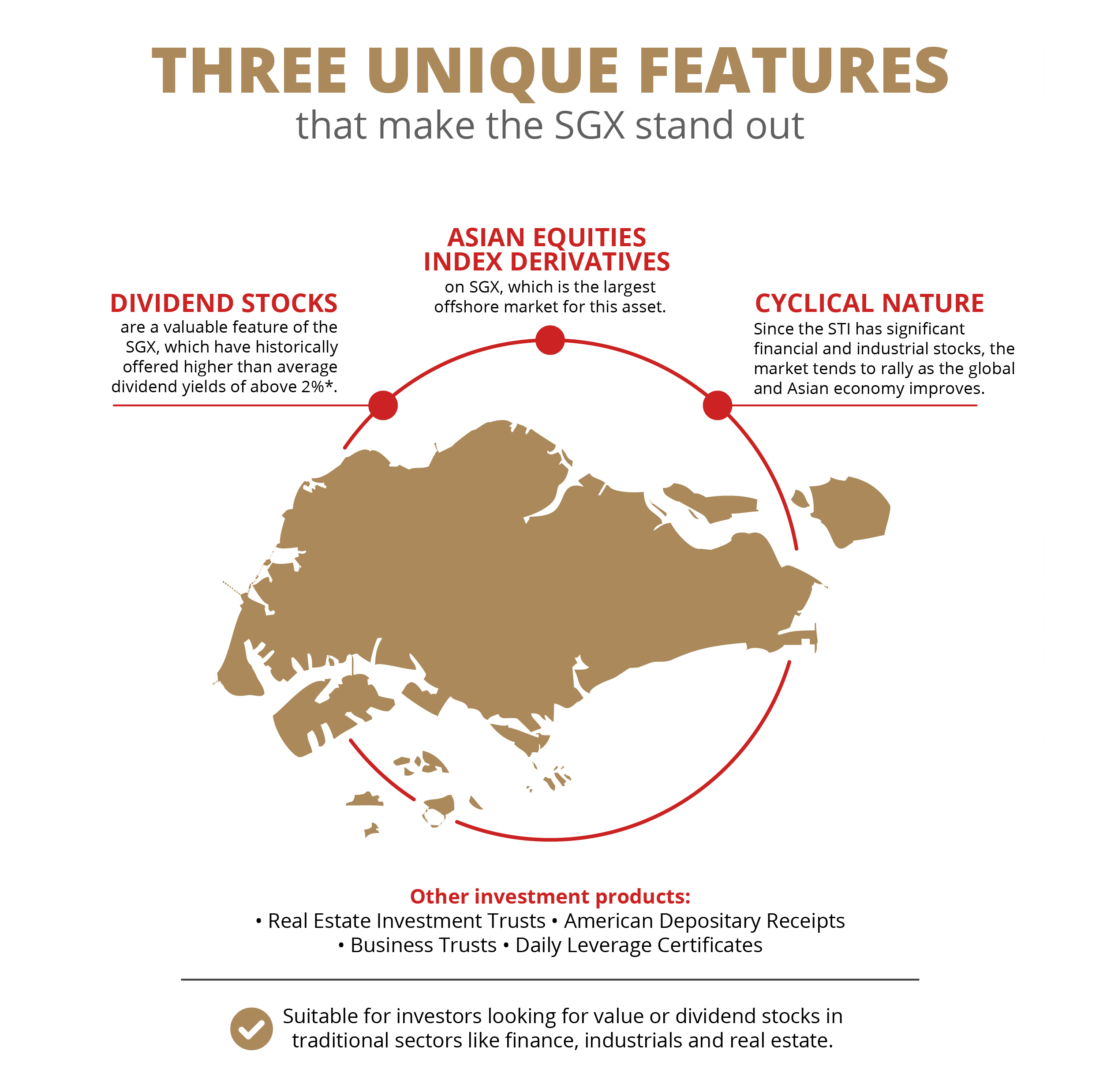Market rules: The simple summary
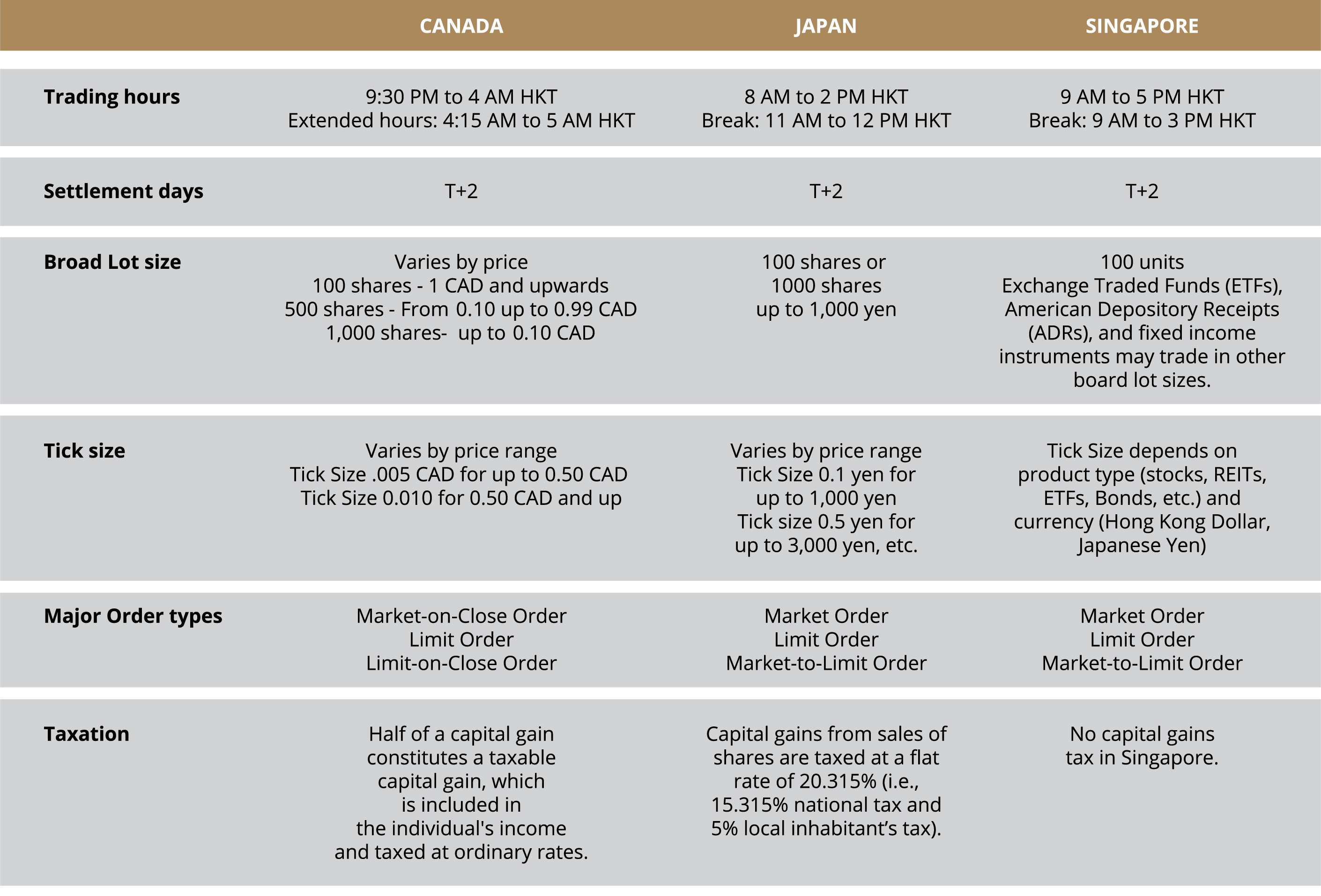
Sources: Worldwide Tax Summaries provided by PricewaterhouseCoopers
Tokyo Stock Exchange (TSE) by the Daytrade The World | Tokyo Stock Exchange Fee Schedule | Trading Hours & Opening/closing routine by Singapore Exchange
Your overseas investments can be impacted by global, regional and country-level macroeconomic factors, and sectoral and company performance. Stay in the know about the market trends that can affect your investments on TSX, TYO and SGX with regular updates from CIO insights. Catch up with your relationship manager regularly to discuss your investment portfolio.
New to DBS? Open your account and connect with an investment advisor who will walk you through the investment opportunities in overseas stock markets.
Make an appointment
Stay tuned for the deep dive into the US, UK & Australia stock markets!
1Largest stock exchange operators worldwide as of June 2021, by market capitalization of listed companies, according to Statista.
2Large-cap companies are usually industry and sector leaders that are well-established and have a significant market share. They are less volatile in comparison to mid-cap and small-cap stocks.
3Canadian Stocks Look Cheap, BofA Says. Why They Could Be Cyclical Superstars as of June, 2021.
4Singapore Exchange About us, as of August 2021.
5SGX Market Statistics Report June 2021.
Risk Disclosures and Important Notices
The information herein is for information only. DBS accepts no liability whatsoever for any direct, indirect or consequential losses or damages arising from or in connection with the use or reliance of this publication or its contents
Investment involves risks. The information provided is based on sources which DBS Bank Limited and DBS Bank (Hong Kong) Limited believe to be reliable but has not been independently verified. Any projections and opinions expressed herein are expressed solely as general market commentary and do not constitute solicitation, recommendation, investment advice, or guaranteed return. The above information does not constitute any offer or solicitation of offer to subscribe, transact or redeem any investment product. Past performances are not indicative of future performances. You should make investment decisions based on your own investment objective and experience, financial situation and particular needs. You should carefully read the product offering documentation, the account terms and conditions and the product terms and conditions for detailed product information and risk factors prior to making any investment. If you have any doubt on this material or any product offering documentation, you should seek independent professional advice.
Securities trading is an investment. The prices of stocks fluctuate, sometimes dramatically. The price of a stock may move up or down and may become valueless. It is as likely that losses will be incurred rather than profits made as a result of trading stocks. The investment decision is yours, but you should not invest in any stock unless you have taken into account that the relevant stock is suitable for you having regard to your financial situation, investment experience and investment objectives.
Customers should be aware that the prices of the Callable Bull / Bear Contracts and Warrants may fall in value as rapidly as they may rise, and holders may sustain a total loss of their investment. The Bank does not provide securities advisory service. Any person considering an investment should seek independent advice on the investment suitability when considered necessary.
Foreign exchange involves risk. Customers should note that foreign exchange may incur loss due to the fluctuation of exchange rate.
RMB currently may not be freely convertible and is subject to exchange controls and restrictions. There is no guarantee that RMB will not depreciate. If you convert Hong Kong Dollar or any other currency into RMB so as to invest in a RMB product and subsequently convert the RMB sale proceeds back into Hong Kong Dollar or any other currency, you may suffer a loss if RMB depreciates against Hong Kong Dollar or other currency.
The information provided above have not been reviewed by the Securities and Futures Commission of Hong Kong or any regulatory authority in Hong Kong.



